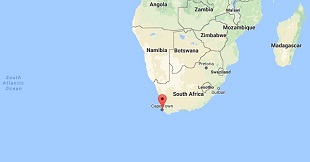Regional and international response
The African Union (AU), which has prevented some military coups by threatening countries with suspension, sanctions, or military intervention, has been criticized for not taking similar actions against attempts at extending presidential terms. In 2012, the AU ratified the African Charter on Democracy, Elections and Governance, which calls on its member states to identify illegal means of accessing power or staying in office, including refusals “to relinquish power after free, fair, and transparent elections” and constitutional amendments that infringe upon “the principles of democratic changes of power,” and sanction those responsible. In January 2017, the AU stated it would not recognize Jammeh, who lost the 2016 election but nonetheless attempted to stay on.
The West African bloc ECOWAS has also become active in some cases. A military offensive by ECOWAS troops forced Jammeh to step down and leave the country. The body often deploys observers to help ensure free and fair elections in the region; in 2019 it sent observers to Guinea-Bissau, Nigeria, and Senegal. ECOWAS leaders discussed a proposal to ban presidents from seeking third terms at a 2015 regional summit, but the bloc postponed a decision due to opposition from Togo and Gambia.
The United Nations and European Union have imposed sanctions on several African countries, including Burundi, the DRC, and Zimbabwe, in response to impeded political transitions or fair elections. The United Nations endorsed ECOWAS military action in Gambia and threatened sanctions if Jammeh refused to leave. Millions in EU development aid to Gambia was frozen in December 2014 due to human rights concerns under Jammeh; following Jammeh’s departure, the bloc released the funds.
U.S. policy on extensions
Democracy promotion has long been a U.S. priority in the region. President Barack Obama said in a 2012 brief on U.S. strategy in sub-Saharan Africa that the United States would “not stand idly by when actors threaten legitimately elected governments or manipulate the fairness and integrity of democratic processes.” In an address to AU leaders three years later, Obama urged the body to ensure that heads of state comply with term limits.
President Donald J. Trump’s administration has said it will not “subsidise corrupt leaders and abusers of human rights” on the continent, but a new Africa strategy outlined in late 2018 marked a shift in priority from democracy advancement to countering China and Russia in the region. Still, CFR’s John Campbell writes that the Trump administration has largely continued the Africa policies of its predecessors and has backed pro-democracy initiatives, such as in Sudan following Bashir’s overthrow.
The United States has imposed economic sanctions, including bans on travel to the United States and business transactions with U.S. nationals, on individuals who “undermine democratic processes.” The United States issued sanctions against Mugabe and other Zimbabwean officials in 2003. The Obama and Trump administrations have sanctioned top officials from the DRC since Kabila refused to schedule an election in late 2016. Ahead of Nigeria’s 2019 election, the United States and United Kingdom jointly announced they would deny visas to Nigerians involved in vote rigging or electoral violence.
At the same time, analysts contend that the United States has often prioritised security interests over concerns about prolonged rule. Washington has chosen not to penalise long-serving leaders of partners, such as Cameroon, Chad, and Uganda. And in the DRC, CFR’s Gavin points out, Washington accepted disputed 2018 election results to avoid further instability. The U.S. military trains partner nations’ military forces, shares intelligence with them, and helps their troops combat Islamist rebel groups on the continent, including al-Shabab in Kenya and Somalia and Boko Haram in Nigeria. More recently, however, the Defense Department has proposed troop withdrawals in parts of Africa as the Pentagon’s focus shifted to China and Russia.
****
Brittany Brown and Nathalie Bussemaker contributed to this report.
Source: ForeignAffairs.com
 The Independent Uganda: You get the Truth we Pay the Price
The Independent Uganda: You get the Truth we Pay the Price



